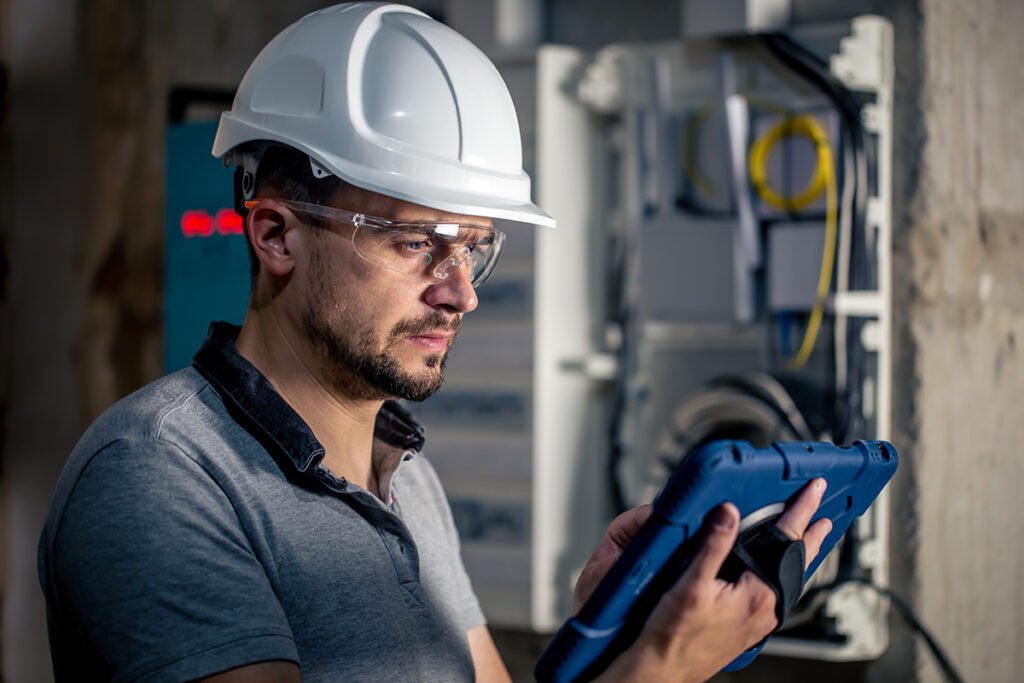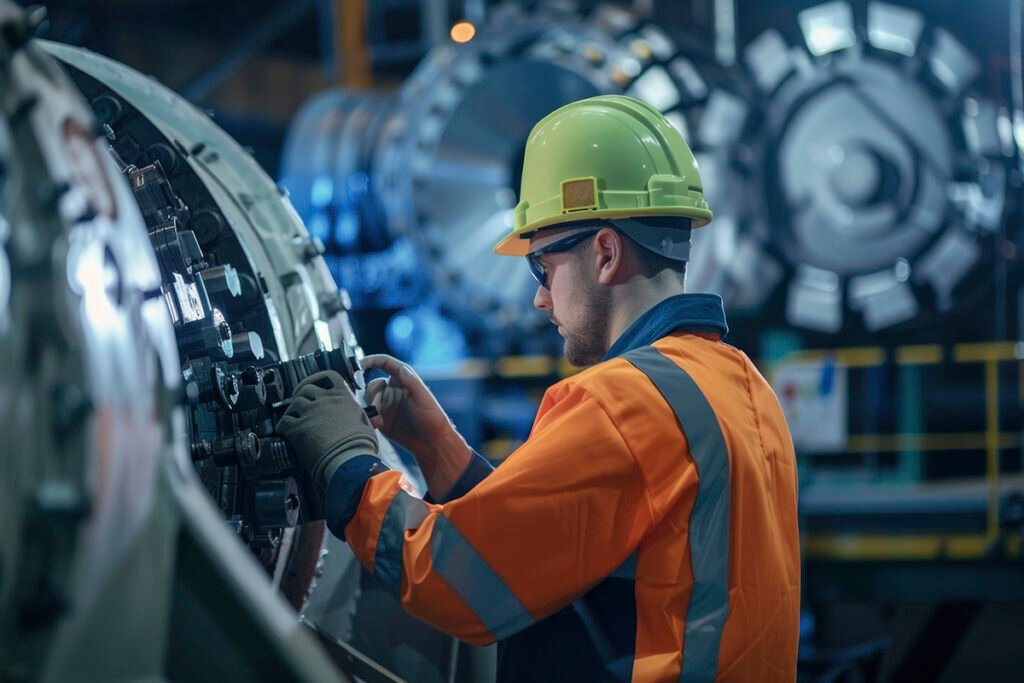Study Mechatronics in Germany with Mechatronics Apprenticeship Program for Filipinos
Dreaming of a hands-on, high-demand career combining computer science, mechanical engineering, and electrical engineering? The Mechatronics Ausbildung Program in Germany offers just that—and more.

Why Filipinos Choose Mechatronics Ausbildung?
Every year, countless Filipinos take a bold step toward a brighter future by enrolling in Mechatronics Ausbildung in Germany. Blending practical training with classroom instruction, this dual education system offers a monthly stipend, no tuition fees, and a clear career path in industries such as automation technology, automotive, and product development. Are you ready to join them?
What Do I Need to Apply? - Documents & Fees
| Year | |
|---|---|
| 1st Year | Foundation in electronics, mechanics, and computer science; basic concepts in control engineering and automation technology. |
| 2nd Year | Deep dive into mechatronic systems, development of motor and sensor control, and teamwork in practical training. |
| 3rd Year | Integration of theoretical knowledge and practice: designing, troubleshooting, and optimizing systems. Ready for final examination and stepping into full-time mechatronics engineering roles. |
| Extension (3.5 years) | Optional focus on control systems, automation projects, or pursuing a Bachelor’s degree via dual studies. |
Career Opportunities After Mechatronics Ausbildung
Completing a Mechatronics Ausbildung training course in Germany opens doors to a wide range of career opportunities. From the 2nd Year onward, you’ll already be gaining hands-on experience inside real German companies, developing both your technical expertise and your communication skills. By the 3rd Year, you’ll have built a strong track record of practical work that makes you highly competitive in the international job market.


Industries That Hire Mechatronics Engineers
- Automotive Industry – Vehicle construction, automation systems, and electrical components.
- Industrial Automation & Robotics – Programming, maintaining, and troubleshooting robotic systems.
- Mechanical and Electrical Systems – Servicing complex mechatronic systems in factories, energy plants, and hospitals.
- Product Development & Testing – Creating, optimizing, and testing new mechanical and electronic products.
- Aerospace & Transportation – Working on advanced control systems and mechanical systems for aircraft and rail.

Common Job Titles After Mechatronics Ausbildung
Once you complete your final examination, you can apply for roles such as:
- Mechatronics Engineer
- Electronics Technician for Automation Technology
- Maintenance Engineer
- Control Systems Technician
- Automation Specialist
- Vehicle Systems Technician
- Industrial Mechanic
- Product Development Technician

Long-Term Career Growth
After gaining experience, you can pursue:
- Team Leader or Supervisor Roles in engineering teams
- Further Training as a Master Craftsman or Certified Technician
- Higher Education like a B. Eng or Master’s Degree in Mechatronics Engineering
- Specialized Positions in control engineering, robotics, or product innovation
With Ausbildung training, you won’t just be prepared for entry-level work—you’ll be positioned for career advancement in Germany’s strongest industries.
How we help students with Mechatronics Ausbildung:
Your journey matters. And we’ve got you covered every step of the way:
Ausbildung Admission
Our team helps you find the right training company and navigate the application process.
Language Support
We offer German language courses up to B2 (including cover letter and application prep).
Visa & Logistics
Assistance with visa, monthly stipend setup, and arrival.
Practical Help
Document prep, interview support, and integration guidance—so you’re ready even before you land.
Growth Path
We help you plan for further training, dual studies, or a Bachelor’s/Master’s, depending on your ambitions.

Ready to Start? Here’s Your Career Path
- Apply Now – Submit your cover letter, high school diploma, and German language certificate.
- Prepare & Learn – Improve your language and communication skills, get interview-ready.
- Train in Germany – Work, learn, and earn hands-on experience as you complete your Ausbildung.
- Pass Final Exam – Earn your qualification and step into the job market.
- Grow Your Career – Pursue further training, dual studies, or enter the workforce as a Mechatronics Engineer.
Frequently Asked Questions (FAQs)
1. What is Mechatronics Ausbildung in Germany?
It’s a dual vocational training program that combines classroom instruction at a vocational school with practical training in a German company. You’ll study mechanical engineering, electrical engineering, computer science, and automation technology while earning a monthly stipend.
2. Who can apply for Mechatronics Ausbildung?
Filipinos with at least a high school diploma (K-12) or school leaving certificate can apply. Applicants must also meet German language requirements (usually B1–B2 level) and show interest in mechanical systems, control engineering, or electronics.
3. How long is the training period?
The training lasts about 3 to 3.5 years (sometimes described as 6–7 half years). Each year builds your theoretical knowledge and practical experience, preparing you for the final examination.
4. Do I need to pay tuition fees?
No. Ausbildung in Germany has no tuition fee. In fact, you will earn a training allowance or monthly stipend ranging from €800–€1,300, which increases from the 1st year to the 4th year of training.
5. What subjects will I study?
- Control systems & control engineering
- Mechatronic systems and product development
- Electrical engineering and electronics technology
- Mechanical systems and vehicle construction
- Computer science for automation and robotics
- Teamwork, communication, and problem-solving skills
6. What career opportunities are available after the Mechatronics Ausbildung?
Graduates become mechatronics engineers or electronics technicians with jobs in industries like:
- Automotive industry (vehicle construction, automotive electronics)
- Automation technology and robotics
- Product development & manufacturing
- Mechanical and electrical systems maintenance
With high demand across Germany, career prospects are excellent.
7. Can I continue studying after Ausbildung?
Yes. Many Filipinos choose further training as a master craftsman, pursue a Bachelor’s degree (B. Eng), or even a Master’s degree. Others combine work and higher education through dual studies for career advancement.
8. Do international students need German language proficiency?
Yes. Most Ausbildung courses require German B1 or B2 proficiency. Some training companies and vocational schools also offer language courses as part of the application process. Strong language skills improve teamwork, classroom participation, and integration in Germany.
9. How does the application process work?
Steps usually include:
- Submitting your application documents (cover letter, CV, diploma, language certificate).
- Passing an interview (in German or English).
- Receiving an Ausbildung admission letter.
- Applying for a student/work visa in Germany.
10. What happens after completing Mechatronics Ausbildung?
After passing the final examination, you’ll be recognized as a qualified mechatronics engineer. You can immediately enter the job market or continue with higher education. Many companies also hire their own trainees full-time after training.
11. Do I need prior work experience?
No prior experience is required, but having basic knowledge in mechanical systems, electronics, or computer science is a plus. The Ausbildung program is designed to provide hands-on training from scratch.
12. Is there support for Filipinos in Germany?
Yes! Through AusbildungforFilipinos.com, you get help with:
- Visa application and requirements
- Finding a training company
- German language courses
- Practical training support
- Further information and career guidance
13. What if I want to work outside Germany after Ausbildung?
A German Ausbildung certificate is recognized across the EU and highly valued globally. This makes you competitive in the international job market, especially in countries seeking skilled workers in automation, vehicle construction, and product development.

Ready to Train and Work as a Mechatronics Engineer in Germany?
- No tuition, just learning and earning.
- Monthly stipend to support your life.
- Real, in-demand skills in mechanical, electrical, and computer engineering.
- A clear path into Germany’s high-demand job market and beyond.
